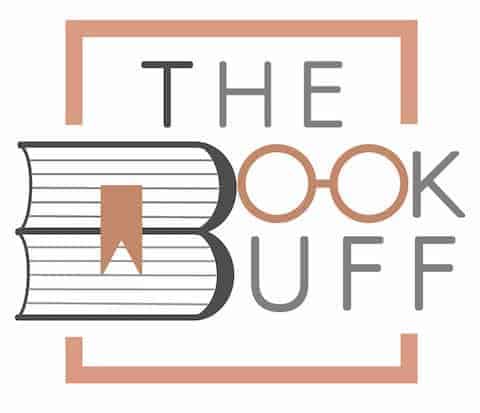How Many Hours Should I Read a Day? [Here’s the Truth!]
Disclosure: This post may contain affiliate links. – meaning I may get a commission if you decide to purchase through my links, at no additional cost to you.
If you love reading or want to love it because of its many benefits, you’ll want to buy the best-looking book and dive right in. Most readers are success-driven people, and such people can be obsessive and very focused. So it is logical to wonder how much time one must spend reading.
You should read at least one hour every day without interruptions to be considered an average book reader. Those who finish a book every week usually engage in focused reading for 1.5 to 3 hours each day and have strategies to avoid distraction from smart devices and people.
In this post, you’ll learn everything about reading time and what each tier of focused reading means. Among what you’ll discover are the key benefits of becoming an avid reader and the traps to watch out for. You’ll also find out what the best reading duration is for kids, students, and adults.
Is it Healthy to Read All Day Long?
“Kids and their cellphones,” older people tend to say, criticizing Millennials and Gen Z.
Being on one’s phone is considered unhealthy because of the effect of the screen on the eyes and the tendency of social media apps to negatively affect people’s mental health and attention span. These are seemingly absent from books, so is reading all day healthy?
It is not healthy to read all day long if the reading habit encroaches on one’s physical health. The human body needs movement, posture changes, and variety for physical fitness, and while reading is good for health, too much of anything (including reading) can be a bad thing.
Of course, compared to being on a cellphone, reading is always the better option. In fact, the equivalent of any time spent on a smartphone is relatively healthier when spent reading.
And, given that the average person spends 5 to 6 hours on a smartphone every day, reading a few hours instead won’t make one’s health worse.
Is Reading 1 Hour a Day Good?

When it comes to reading, we cannot quantify the time spent with a book in minutes, mainly because it takes at least ten minutes to get into focused reading mode.
And, since one’s posture doesn’t start getting affected until a few hours into a stationary position, an hour seems like a reasonable starting time.
One hour a day is a good reading time if you want to finish one book every week (especially as a beginner). In general, it should take around 5 to 7 days to finish a book if you dedicate one hour to distraction-free reading.
During this time, your phone should be silent and out of reach, and you should not switch tasks even for a second, as this causes a cognitive drain.
However, this reading time is just a good starting point. To make the most out of books, you must consider your personal context and capacity for focus.
The more you can read, the better it is as long as you don’t overdo this. Below are reading time recommendations that can be considered admirable targets to aim for.
Recommended Reading Time per Day
One should spend between 1 to 1.5 hours reading every day. This time should be spent in a single sitting for maximum effect as glancing at a book every now and then isn’t good for focused learning.
The recommended time changes are based on age group and reading experience as well.
- Recommended Reading Time per Day for Adults – 2 hours. Adults should read two hours a day, with one hour per sitting. Reading two different books is great for creative association and new insights.
- Recommended Reading Time per Day for Students – 3 hours, including school material or 1 hour excluding school material. If you’re reading books for school, then you should spend two hours on those and one hour reading something that interests you.
- Recommended Reading Time per Day for Kids – 12 minutes. You should engage your child in reading for 12 minutes without distractions. This is a lot of time for a child to focus on one thing, and it is healthy for their long-term mental wellbeing and memory as well.
Pushing past 12 minutes isn’t recommended but if your kid can spontaneously read for up to 30 minutes, let them.
How Much Reading in a Day is Too Much?
Reading more than one hour in one sitting is too much, and reading over four hours in a day can be mentally exhausting.
However, these recommendations are based on the average person, and your individual capacity may vary. Regardless, it is helpful to keep your posture healthy, potential eye strain in mind when you get too absorbed in a book.
If you start to develop a headache while reading, make sure you visit an eye doctor. Check out our article on “Headaches due to Reading” to identify the cause and tips to fix it.
Tips for a Healthy Reading Habit
We’ve mentioned some really good tips in our other article on the best position to read a book. So, make sure that you check out that article to get the full insights!
That said, here are a couple of tips to get you started –
- Know yourself – The first step in making sure you engage in optimal reading is to know which of two buckets you fall into: you read too little, or you read too much. Depending on that, you can gear your reading habit towards moderation.
- Use rewards or barriers – If you read too much, then use a timer to pull you out of the reading experience when you hit the recommended upper limit. Alternatively, if you read too little, reward yourself for hitting the one-hour mark.
Benefits of Reading Every Day

There are a ton of benefits of reading every day. Based on my experience, here are some of the benefits that you can expect –
Sharpens your brain
Many cognitive skills have a real “use it or lose it” tendency, which is why reading is important because it forces your brain to stay actively engaged and practice recall, processing, and focus.
Reduces anxiety and stress
This isn’t as much a function of reading as it is a byproduct of your reading activity replacing other boredom-killers that are also major stress-producers.
Everything from social media doom-scrolling to comparing yourself to uber-rich celebrities on TV can produce feelings of inadequacy. Reading makes you slow down, which is crucial for your mental wellbeing.
Improves your memory
Reading engages your short-term recall and provides grounds for the improvement of long-term memory as well. I’ve written an entire post on the subject, so you might want to check that out.
Expands your vocabulary
When it comes to expression and even comprehension, words are like tools. The more tools you have, the more capable you are. Reading is one of the few sources we have for getting acquainted with new words.
And the expansion of your vocabulary directly improves your understanding, expression, and empathy.
Reading makes you more creative
Your brain is a machine that detects patterns and creates connections. The more valuable ideas and information you feed it, the better insights it can have.
As an avid reader of non-fiction and even fiction, you’re feeding your brain a focused stream of deep content. With better brain connectivity, soon, you’ll feel more inspired and have incredible epiphanies off the cuff.
Things to Watch Out for When Becoming an Avid Reader
As covered above, becoming an avid reader is quite fruitful for your cognition, mental health, and success in life. However, there are certain traps that lie dormant for most potential readers. Watch out for these three things when you’re en route to becoming an avid reader.
1. The social validation trap
If you derive a kick out of feeling superior to others now that you are a reader, you might end up posting about the books you read not because of their content but just to flex your intellectual inclinations.
The problem? Posting about what you read will give you a better dopamine hit (rush) than actually finishing a book. Given how the human brain works, you’ll end up motivated to post about books you’ve skimmed instead of actually reading them.
2. Posture poison
If you sit in the wrong position for extended periods, your spine and body posture will get adversely impacted.
The problem with becoming a hyper-focused reader is that you don’t pay attention to posture. Having a chair like BestOffice Gaming Chair (on Amazon) can help as it is designed to be sat on for hours on end without affecting one’s back.
3. Eyestrain
Even when you use paper books or kindle instead of a smartphone, reading a lot can start to affect your eyes. This happens when you reduce your blinking rate and unknowingly dry out your eyes.
Your eyes will feel a spicy sensation and then water. If this happens, you must cut the reading time in half until your blinking rate naturally catches up with reading activity, and you can effortlessly read more.
Can You Become Street Smart by Reading?
The dichotomy between “book smarts” and “street smarts” has led to many people dismissing the intellectual value of books. In reality, these terms are emphasized by those trying to overcompensate for not putting in the effort required to read.
You can become street smart by reading because there are thousands of books written by people who have had real-life experiences. These books convey “street wisdom,” and a reader doesn’t have to go through the same trials and tribulations to gain the same wisdom.
Do Audiobooks Count as Reading?
An audiobook doesn’t count as reading but it is more effective than skimming and reading book summaries as it ensures you spend more time with a book than you would as a silent reader. The medium is better for those who prefer to learn by listening than by reading.
There’s an air of superiority to being an avid reader. In fact, entire businesses have been built to make people look as if they read. Book summary businesses even advertise the fact that you’ll be able to tell people you’ve “read” a certain number of books.
Audiobooks seem like a compromise between a book summary and putting in the effort to read an entire book, but does it count as reading?

About the Author
Akansha is a former business journalist and a seasoned communications professional. She is the founder of TheBookBuff, an avid storyteller, and a lifelong biblophile! Check out her profile page to know more about Akansha.

![Can Reading Aloud Help With Stuttering? [Here’s How!]](https://thebookbuff.com/wp-content/uploads/2021/12/pexels-karolina-grabowska-7281581-300x200.webp)
![How to Find Your Kindle Serial Number? [The EASY Way!]](https://thebookbuff.com/wp-content/uploads/2021/11/female-warehouse-worker-scanning-barcode-on-shippi-2021-09-02-07-22-45-utc-optimized-300x200.webp)
![Is The Basic Kindle Good Enough? [All New Kindle Review!]](https://thebookbuff.com/wp-content/uploads/2022/09/Kindle-kept-on-a-table-300x200.webp)

![Can Kindle Battery be Replaced? – Here’s How! [Full Guide]](https://thebookbuff.com/wp-content/uploads/2022/04/pexels-dan-cristian-pădureț-1476321-300x200.webp)